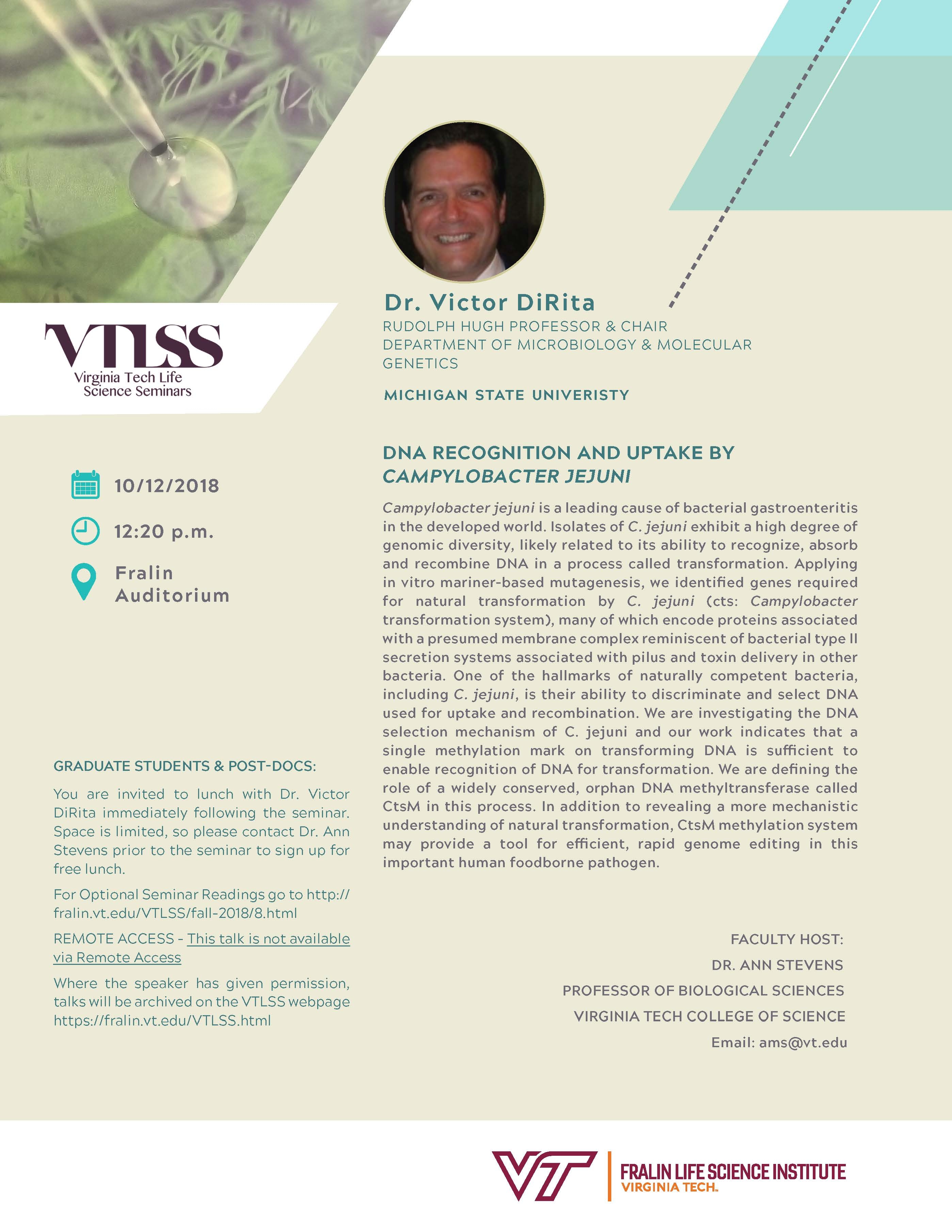DNA recognition and uptake by Campylobacter jejuni

Dr. Victor DiRita
October 12 at 12:20pm in the Fralin Auditorium, Fralin Hall room 102
Hosted by Ann Stevens
Victor DiRita is Rudolph Hugh Endowed Chair in Microbial Pathogenesis and Chair of the Department of Microbiology and Molecular Genetics at Michigan State University, where he has served since 2015. He earned a B.S. in Microbiology and Public Health at Michigan State, followed by a Ph.D. in Biological Sciences at Purdue. He did postdoctoral work at Harvard Medical School prior to joining the faculty at University of Michigan. There he progressed to Professor of Microbiology and Immunology and Associate Dean for Graduate & Postdoctoral Studies. His studies biology and pathogenicity mechanisms of Gram negative microbes, emphasizing mechanisms of gene regulation, membrane protein structure and function, host-microbe interactions, and development and application of tools for gene and drug discovery. His trainees are in positions across the spectrum of biomedical research, teaching and policy professions.
Nationally, he served as chair of the Gordon Conference on Microbial Toxins and Pathogenicity, on the NIH Bacterial Pathogenesis study section, and as former editor for Infection and Immunity. Currently he serves on the NIAID Microbiology and Infectious Diseases study section and as editor for Journal of Bacteriology. He is past chair of the American Society for Microbiology (ASM) Council on Microbial Sciences, is a member of the ASM Board of Directors, and leads the Host-Microbe Biology Track for the ASM Microbe Meeting Planning Committee. He is a Fellow of the American Academy of Microbiology.
Campylobacter jejuni is a leading cause of bacterial gastroenteritis in the developed world. Isolates of C. jejuni exhibit a high degree of genomic diversity, likely related to its ability to recognize, absorb and recombine DNA in a process called transformation. Applying in vitro mariner-based mutagenesis, we identified genes required for natural transformation by C. jejuni (cts: Campylobacter transformation system), many of which encode proteins associated with a presumed membrane complex reminiscent of bacterial type II secretion systems associated with pilus and toxin delivery in other bacteria. One of the hallmarks of naturally competent bacteria, including C. jejuni, is their ability to discriminate and select DNA used for uptake and recombination. We are investigating the DNA selection mechanism of C. jejuni and our work indicates that a single methylation mark on transforming DNA is sufficient to enable recognition of DNA for transformation. We are defining the role of a widely conserved, orphan DNA methyltransferase called CtsM in this process. In addition to revealing a more a mechanistic understanding of natural transformation, CtsM methylation system may provide a tool for efficient, rapid genome editing in this important human foodborne pathogen.



This seminar will NOT be livestreamed, but will be archived on the Fralin YouTube channel.


